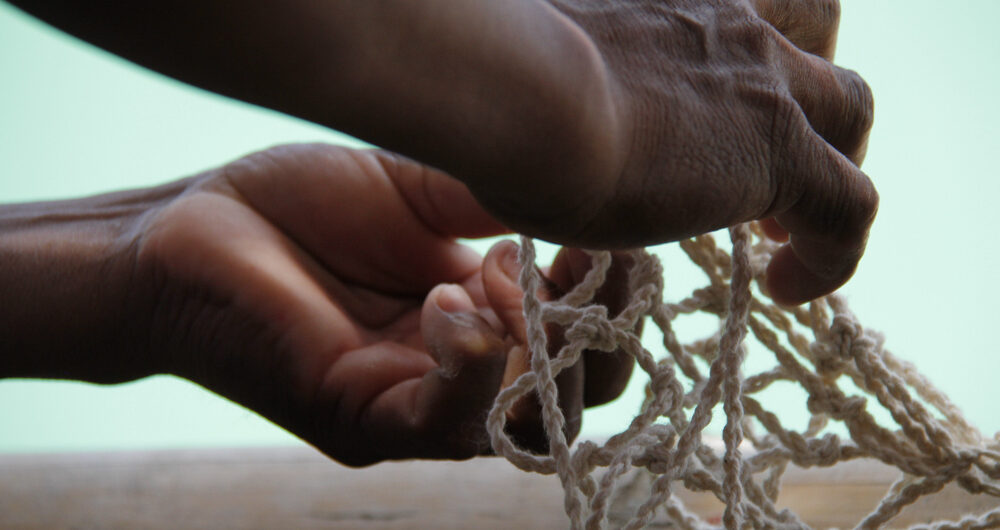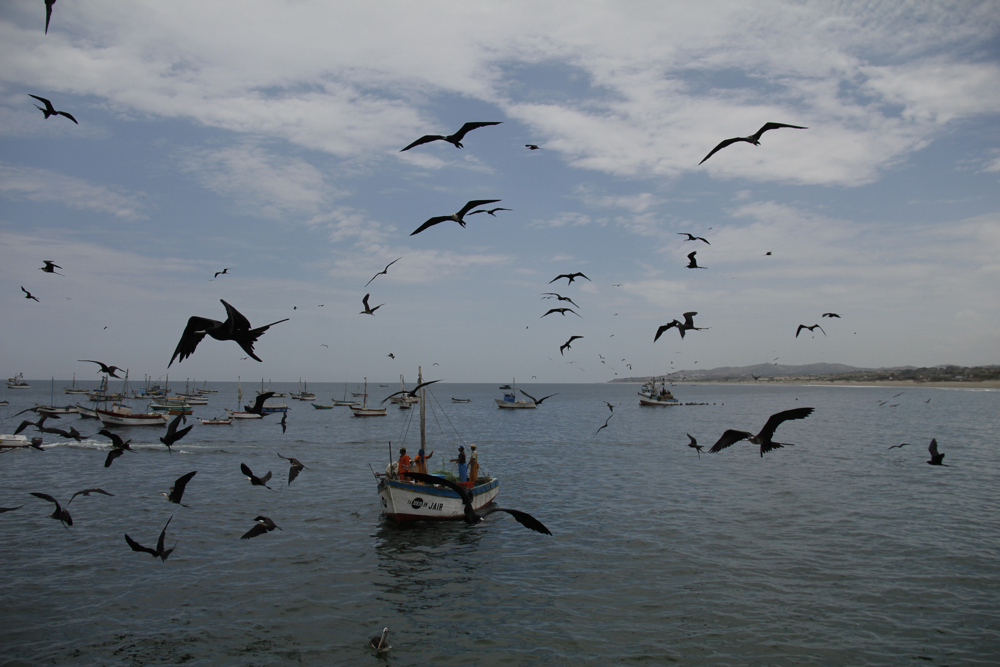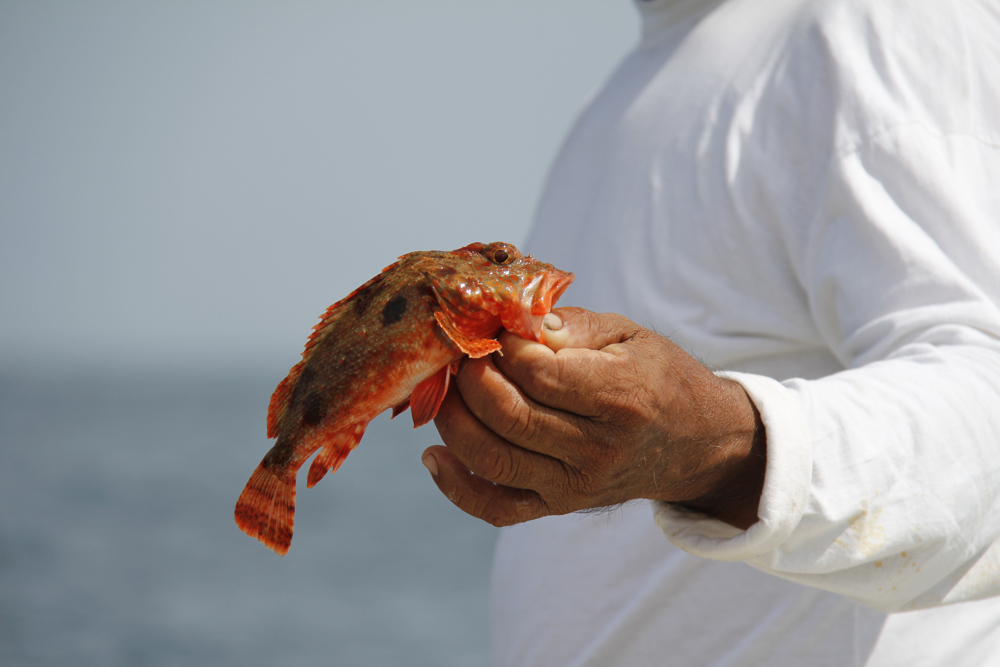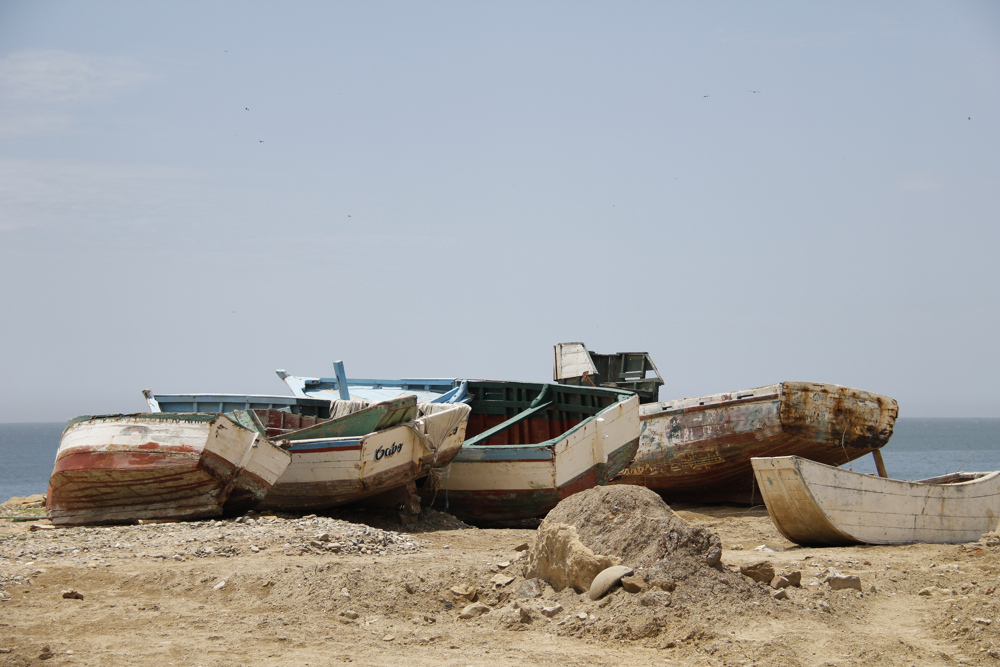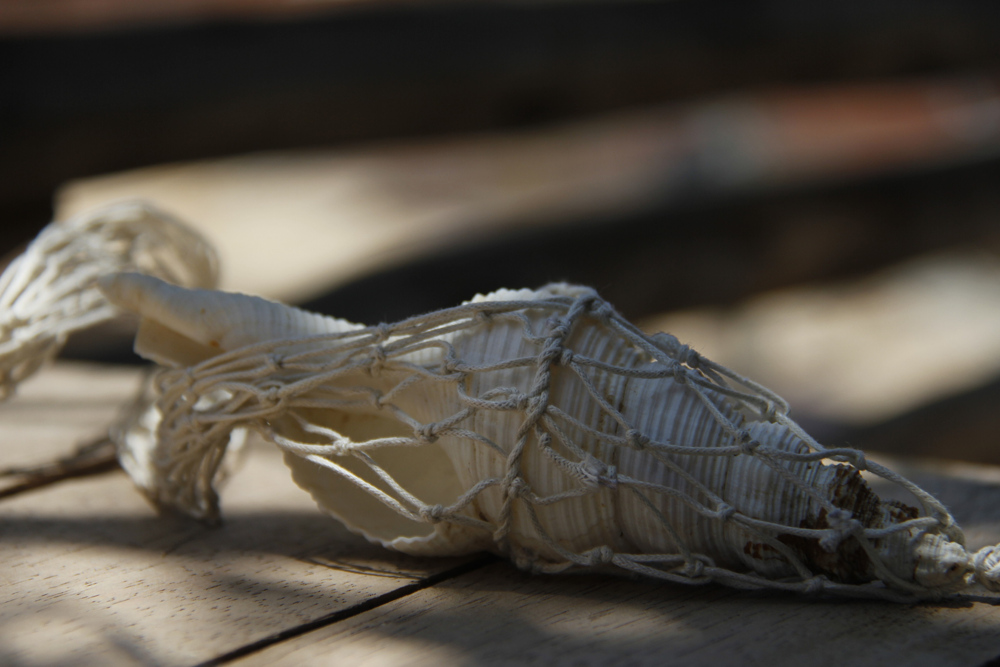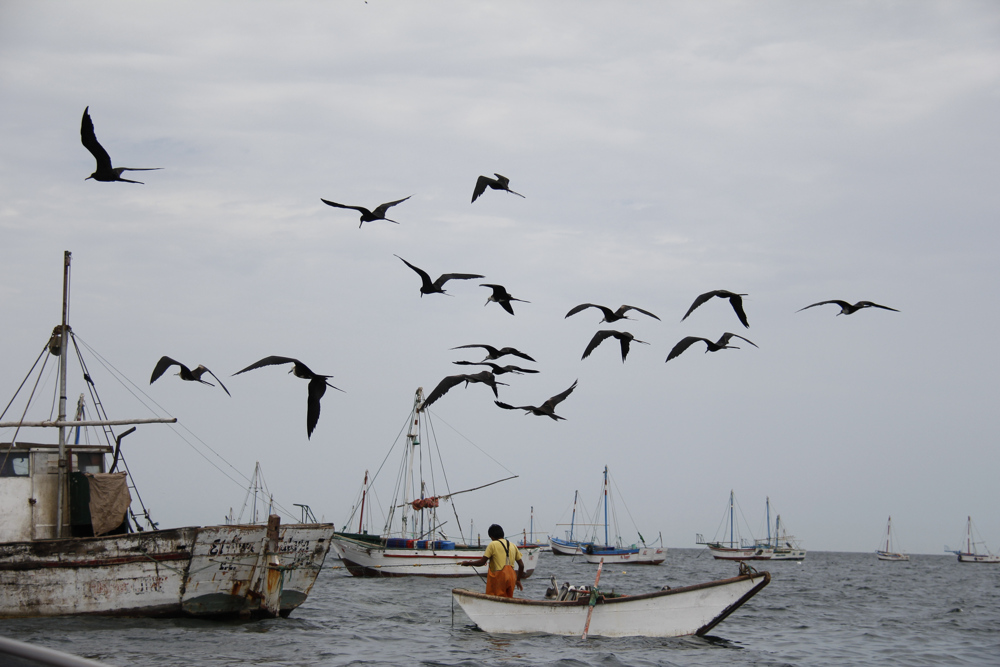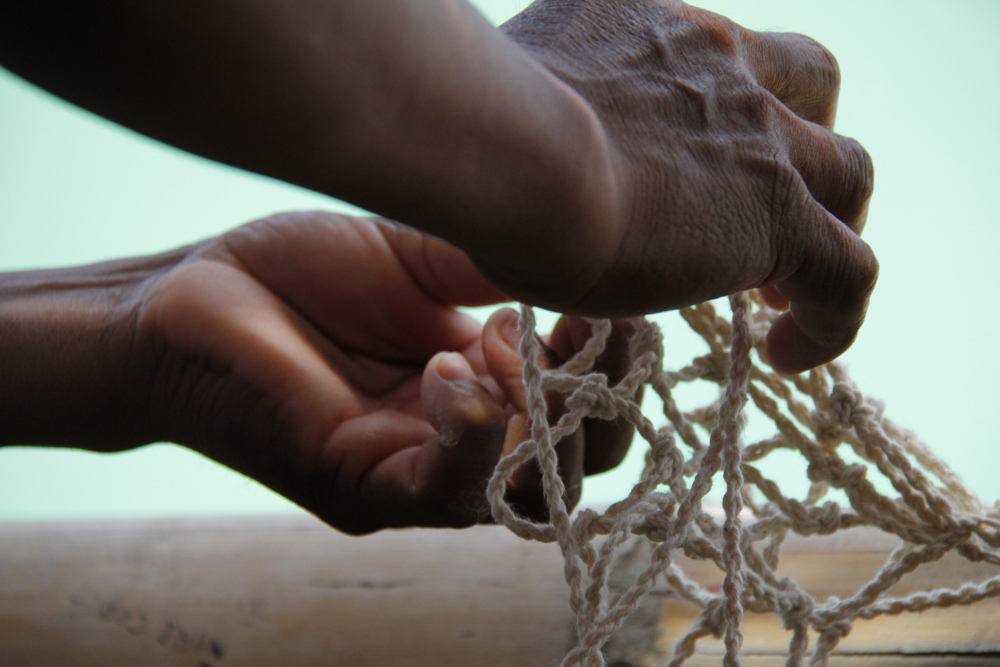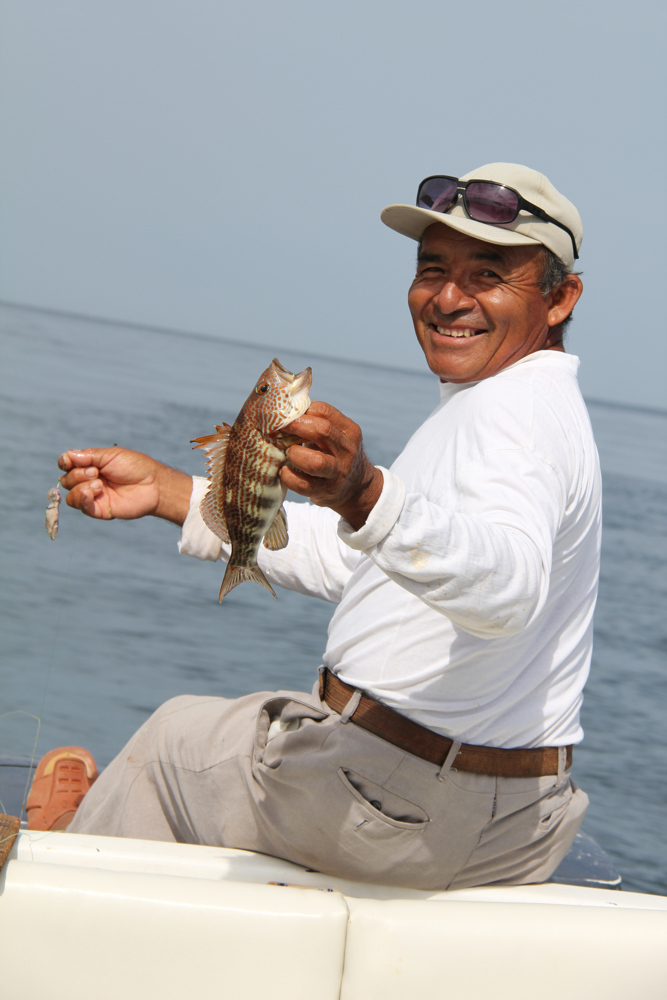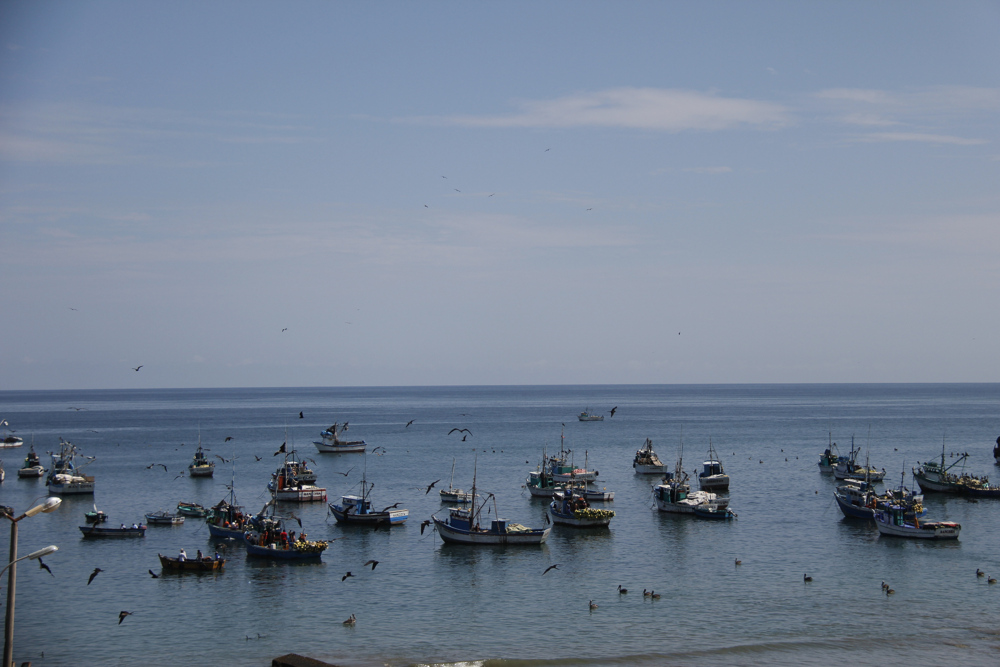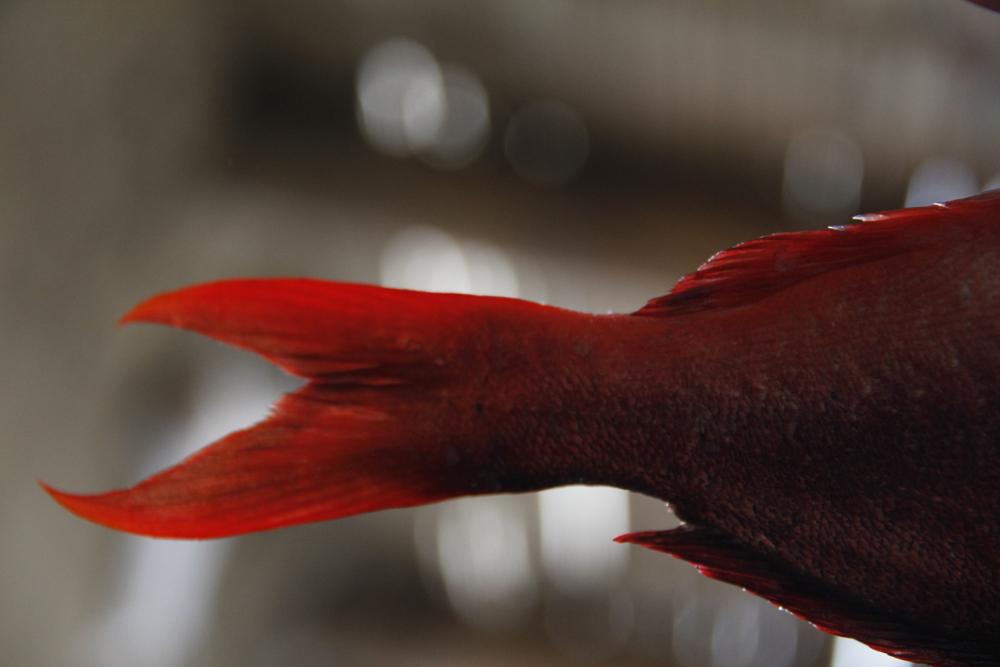Artisanal Fishing in Peru’s Cabo Blanco, a village in the North of the country, is declared National Cultural Heritage by the Ministry of Culture in Peru
In the 1950s and 1960s, Cabo Blanco became an important fishing destination for the abundance and variety of species that came to this particular spot – where the cold waters of the Humboldt Current collide with the warm waters from the Pacific Equatorial Current – because of the surges of plankton which rushed to the surface. This small town in the North of Perú – close to the sunny beaches and five-star hotels of Mancora – became a glamorous meeting place for celebrities such as Marilyn Monroe, John Wayne, Paul Newman and Ernest Hemingway, among many others.
Hemingway in Cabo Blanco
In fact, Hemingway used the famous “Cabo Blanco Fishing Club” as the setting for the movie based on his novel, The Old Man and the Sea. He was seen fishing aboard his “Miss Texas” yacht during the day and parting at night and became famous in the village when he caught a 700-pound marlin. Later in 1953, Alfred Glassell Jr. caught the IGFA all tackle world record black marlin, weighing 1560 pounds.
Fishing in Peru
Gradually Cabo Blanco was forgotten as overfishing decimated the species that made the area known worldwide. This was mainly cause by overfishing anchovies who would prey on the plankton and they, in turn, were food for the Marlin, squid and swordfish. Anchovies provided cheap, nutritious animal feed for farm animals all over Britain, Europe and America – so commercial fishing escalated. Britain alone imported 135,000 tons of fishmeal from all over Peru in 2010. According to official data, the practice had devastating effects on some areas, like Cabo Blanco, where 41,000 tons of fish caught annually in 2000 declined to just 3,000 tons by 2009.
National Cultural Heritage
In a motion to revert this tragedy, small scale Artisanal Fishing in Cabo Blanco and El Nuro, have been declared National Cultural Heritage by the Ministry of Culture in Perú. “It is the most important acknowledgement ever given to this millenary tradition, which nowadays plays a key role for the conservation of the Tropical Pacific Sea and the sustainable use of fishery resources,” says Inkaterra founder and chairman José Koechlin,who was one of the proponents through his environmental NGO along with the Cabo Blanco Artisanal Fishermen Guild.
Artisanal fishing in Peru is an ancestral practice that is selective and sustainable in its methods and scale. Using artisanal sailing boats with ship sails made from cotton and natural fibers, these wise fishermen know how to move following the place where the winds, the Humboldt currents and the warm and cold waters of the Pacific meet to create the perfect environment for the great biodiversity of this area.
Visit Peru’s Northern Beaches
Visiting the top Northern Peru Beaches is easy thanks to short, direct flights from Lima. With year-round sunshine and top-notch properties, it’s an ideal getaway to rest and relax by sandy shores. Our sample 11-day itinerary ‘Peru Mountains to Beach‘ takes in Lima, Cusco and the Sacred Valley, before kicking back at stylish KiChic on Peru’s northern coastline.

